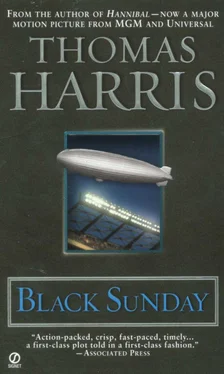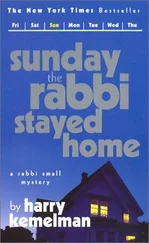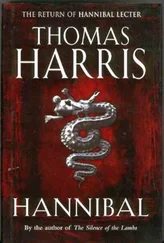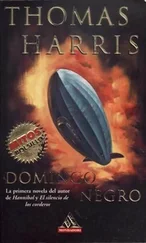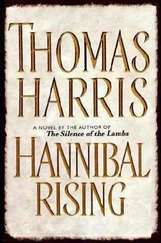On New Year’s Eve, the Tigers of Louisiana State University lost to Nebraska 13-7 in the Sugar Bowl Classic. Kabakov attended.
He had never seen a football game before and he did not see much of this one. He and Moshevsky spent most of the time prowling under the stands and around the gates, ignored by the numerous FBIagents and police in the stadium. Kabakov was particularly interested in how the gates were manned and what access was allowed through them after the stadium was full.
He found most public spectacles annoying, and this one, with the pom-poms and the pennants and the massed bands, was particularly offensive. He had always considered marching bands ridiculous. The one pleasant moment of the afternoon was the flyover at halftime by the Navy’s Blue Angels, a neat diamond of jets catching the sun during a beautiful slow roll high above the droning blimp that floated around the stadium. Kabakov knew there were other jets too—Air Force interceptors poised on runways nearby in the unlikely event that an unknown aircraft approached the New Orleans area while the game was in progress.
The shadows were long across the field as the last of the crowd filtered out. Kabakov felt numbed by the hours of noise. He had difficulty understanding the English of the people he heard in conversation, and he was generally irritated. Corley found him standing at the edge of the track outside the stadium.
“Well, no bang,” Corley said.
Kabakov looked at him quickly, watching for a smirk. Corley just looked tired. Kabakov imagined that the expression “wild-goose chase” was in wide use at the stadiums in other cities, where tired men were searching for explosives in preparation for the games on New Year’s Day. He expected plenty was being said here, out of his hearing. He had never claimed that the target was a college bowl game, but who remembered that? It didn’t matter anyway. He and Corley walked back through the stadium together, heading for the parking lot. Rachel would be waiting at the Royal Orleans.
“Major Kabakov.”
He looked around for an instant before he realized the voice came from the radio in his pocket. “Kabakov, go ahead.”
“Call for you in the command post.”
“Right.”
The FBI command post was set up in the Tulane public relations office under the stands. An agent in shirtsleeves handed Kabakov the telephone.
Weisman was calling from the Israeli embassy. Corley tried to deduce the nature of the conversation from the brief replies Kabakov made.
“Let’s walk outside,” Kabakov said, as he handed back the telephone. He did not like the way the agents in the office pointedly avoided looking at him after this day of extra effort.
Standing at the sideline, Kabakov looked up at the flags blowing in the wind at the top of the stadium. “They’re bringing in a helicopter pilot. We don’t know if it’s for this job, but we know he’s coming. From Libya. And they’re in a hell of a hurry.”
There was a brief silence as Corley digested this information.
“How much of a make have you got on him?”
“The passports, a picture, everything. The embassy is turning our file over to your office in Washington. They’ll have the stuff here in a half hour. You’ll probably get a call in a minute.”
“Where is he?”
“Still on the other side—we don’t know where. But his papers will be picked up in Nicosia tomorrow.”
“You won’t interfere—”
“Of course not. We are leaving the operation strictly alone on that side. In Nicosia we’re watching the place where they get the papers and the airport. That’s all.”
“An air strike! Here or somewhere. That’s what they had in mind all the time.”
“Maybe,” Kabakov said. “Fasil may be running a diversion. It depends on how much he knows we know. If he is watching this stadium or any stadium, he knows we know plenty.”
In the New Orleans office of the FBI, Corley and Kabakov studied the report on the pilot from Libya. Corley tapped the yellow Telex sheet. “He’ll be coming in on the Portuguese passport and leaving on the Italian one with the U.S. entry stamp already on it. If he flashes that Portuguese passport at any entry point, anywhere, we’ll know it within ten minutes. If he is part of this project, we’ve got them, David. He’ll lead us to the bomb and to Fasil and the woman.”
“Perhaps.”
“But where were they planning to get a chopper for him? If the target is the Super Bowl, one of the people here has it set up”
“Yes. And close by. They don’t have a lot of range.” Kabakov ripped open a large manila envelope. It contained one hundred pictures of Fasil in three-quarter profile and one hundred prints of the composite drawing of the woman. Every agent in the stadium carried the pictures. “NASA did a good job on these,” Kabakov said. The pictures of Fasil were remarkably clear, and a police artist had added the bullet stripe on his cheek.
“We’ll get them around to the flying services, the naval station, every place that has helicopters,” Corley said. “What’s the matter with you?”
“Why should they get the pilot so late? It all fits very nicely except for that. A big bomb, an air strike. But why so late with the pilot? It was the chart from the boat that first suggested a pilot might be involved, but if it was a pilot who marked the chart, he was already here.”
“Nautical charts are available all over the world, David. It might have been marked on the other side, in the Middle East. A safety factor. An emergency rendezvous at sea, just in case. The chart could have come over with the woman. And as it turned out, they needed the rendezvous when they thought Muzi was unreliable.”
“But the last-minute rush for the papers doesn’t fit. If they had known far in advance that they were going to use the Libyan, they would have had the passports ready long ago.”
“The later he was brought into it, the less chance of exposure.”
“No,” Kabakov said, shaking his head. “Rushing around for papers is not Fasil’s style. You know how far ahead he made the arrangements for Munich.”
Anyway, it’s a break. I’ll get the troops out to the airports with these pictures first thing tomorrow,” Corley said. ”A lot of the flying services will be closed over New Year’s. It may take a couple of days to talk to them all.”
Kabakov rode up in the elevator at the Royal Orleans Hotel with two couples, both laughing loudly, the women in elaborate beehive hairdos. He practiced understanding their speech and decided the conversation would not have made sense if he had understood it.
He found the number and knocked on the door. Hotel-room doors all look blank. They do not admit that there are people we love behind them. Rachel was there all right, and she hugged Kabakov for several seconds without saying anything.
“I’m glad the flatfeet gave you my message at the stadium. You could have invited me to meet you down here, you know.”
“I was going to wait until it was over.”
“You feel like a robot,” she said, releasing him. “What have you got under your coat?”
“A machine gun.”
“Well take it off and have a drink.”
“How did you get a place like this on short notice? Corley had to go home with a local FBI agent.”
“I know someone at the Plaza in New York, and the same people own this hotel. Do you like it?”
“Yes.” It was a small suite, very plush.
“I’m sorry I couldn’t fix Moshevsky up.”
“He’s right outside the door. He can sleep on the couch—no, I’m kidding. He’s all right at the consulate.”
“I sent for some food.”
He was not listening.
“I said some food is on the way. A Chateaubriand.”
Читать дальше
